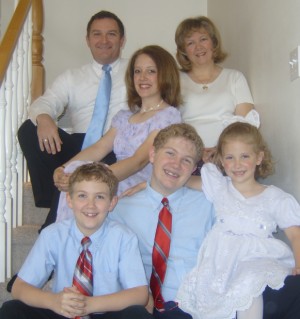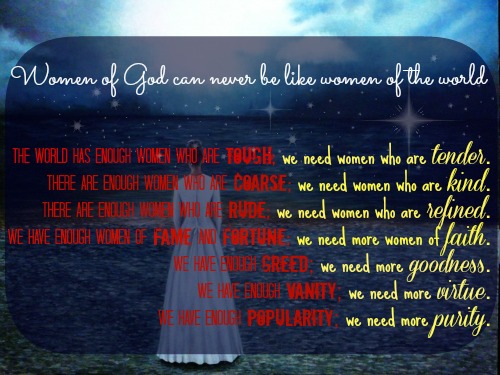Members of The Church of Jesus Christ of Latter-day Saints, often mistakenly referred to as Mormons, believe that death does not permanently separate family members. This belief helped member Caleb Ceran when his mother and two siblings were killed in a car accident in 2006. Caleb, his father, mother, and brother and sister were returning home on Christmas Eve from a cast party for a production of “A Christmas Carol” when a drunk driver hit them.
This was not the first time Caleb lost family members in death: three siblings died from malignant brain tumors and twin siblings died at birth. From the moment that Caleb’s dad told him that his mother and two more siblings had died, his testimony of his family being together eternally “was confirmed with an overwhelming peace that has never left him.”
“The Family: A Proclamation to the World,” a declaration by the First Presidency and the Quorum of the Twelve Apostles of the Church of Jesus Christ detailing the eternal nature of the family and the responsibilities of family members, reminds Latter-day Saints—as well as the world—that God intends that His children keep their family structures intact: “The divine plan of happiness enables family relationships to be perpetuated beyond the grave.”
 The proclamation also teaches that “Sacred ordinances and covenants available in holy temples make it possible for individuals to return to the presence of God and for families to be united eternally.” The Church of Jesus Christ builds temples throughout the world so that members who meet specific entrance requirements may go to the temple and make covenants with God. (There are currently 168 LDS temples operating, planned, or under construction in the world.
The proclamation also teaches that “Sacred ordinances and covenants available in holy temples make it possible for individuals to return to the presence of God and for families to be united eternally.” The Church of Jesus Christ builds temples throughout the world so that members who meet specific entrance requirements may go to the temple and make covenants with God. (There are currently 168 LDS temples operating, planned, or under construction in the world.
Instead of feeling angry about the tragic death of his mother, Caleb “felt grateful for a merciful Father in Heaven who would reunite his mother with her five children who had passed away years earlier.” He said, “I knew at that moment that God loved every one of us. There is no way my mom could have handled losing two more of her children.”
Questioning or blaming God is a natural reaction when tragedy strikes. Caleb looks to his father as an example of feeling gratitude instead of questioning God. “Instead of asking, ‘Why are you doing this to me?’,” Caleb’s father asks God this question: “‘Why are you trying to make me more like you?’ It is this perspective that has helped the Ceran’s understand why they go through the trials they do.”
Caleb has also been blessed by forgiving the drunk driver who hit their car. “I’ve never even thought to be angry at him, which sometimes makes me feel like I’m not a normal person,” Caleb said. “I hope that one day he’ll be able to find that hope and joy and find forgiveness through the Savior, so he can live a meaningful life.”
Caleb maintains a positive attitude in his life, which is a reflection of his faith in the Lord Jesus Christ and in his belief that he will be with his mother and siblings again. “He often thinks about what his mom would think of his life or if she’d be proud of him.” He senses that his beloved family members are aware of him and are “guiding” him.
In 2008, Caleb’s father remarried and Caleb feels deeply grateful for his stepmother and four stepsiblings. In 2010 the family grew again when the family hosted four children from the Ukraine for two weeks. The Ceran’s decided that “they wanted to adopt three of the children who were siblings” which they were able to do despite changes in Ukrainian adoption laws. Caleb’s adopted siblings are “honestly some of my best friends. I feel like I’m in a movie or something. It’s just too good to be true that we have them.”
Life hasn’t been completely easy for Caleb, however. During his senior year of high school, he began “to struggle with resurfacing emotions of loss and to feel pain he’d never experienced before. Although he felt like a truly happy person, he realized he hadn’t completely been able to heal from his loss.” But again his faith in Jesus Christ helped him overcome that pain and he said he now has “so much more compassion for others” and that “one of the greatest blessings” of his trials has been to “speak with other people who have dealt with trials.”
Caleb has relied upon prayer, scripture study, and playing the piano to get him through his difficulties and to bring him peace. He recently recorded a CD, which he dedicated, in part, to his mom and a friend who moved to Germany. Caleb said he wanted to write the song “Part of Me” because both his friend and his mom are part of him. “I just had that feeling where I know part of me is missing, but I know that it will come back.” He said the song is an expression of gratitude for the way they touched his life and inspired him. “It’s a song to let them know I’ll never forget them.”
The Church of Jesus Christ recently released a video that includes Caleb sharing his testimony on the 2013 theme for the youth of the Church: “Stand Ye in Holy Places.”
This article was written by Paula Hicken, a member of The Church of Jesus Christ of Latter-day Saints.
 Paula Hicken was an editor with the Neal A. Maxwell Institute for Religious Scholarship from 2000 to 2013. She earned her BA degree in English from Brigham Young University. She edited Insights, the Maxwell Institute newsletter, and was the production editor for Faith, Philosophy, Scripture, Hebrew Law in Biblical Times (2nd ed.), Third Nephi: An Incomparable Scripture, and was one of the copy editors for Analysis of the Textual Variants of the Book of Mormon. She also helped manage the Maxwell Institute intellectual property and oversaw rights and permissions. She has published in the Ensign, the Liahona, the LDS Church News, and the FARMS Review.
Paula Hicken was an editor with the Neal A. Maxwell Institute for Religious Scholarship from 2000 to 2013. She earned her BA degree in English from Brigham Young University. She edited Insights, the Maxwell Institute newsletter, and was the production editor for Faith, Philosophy, Scripture, Hebrew Law in Biblical Times (2nd ed.), Third Nephi: An Incomparable Scripture, and was one of the copy editors for Analysis of the Textual Variants of the Book of Mormon. She also helped manage the Maxwell Institute intellectual property and oversaw rights and permissions. She has published in the Ensign, the Liahona, the LDS Church News, and the FARMS Review.
Reference:
Megan Marsden, “Mormon young man faces loss of three family members with faith,” Deseret News, February 11, 2013.




